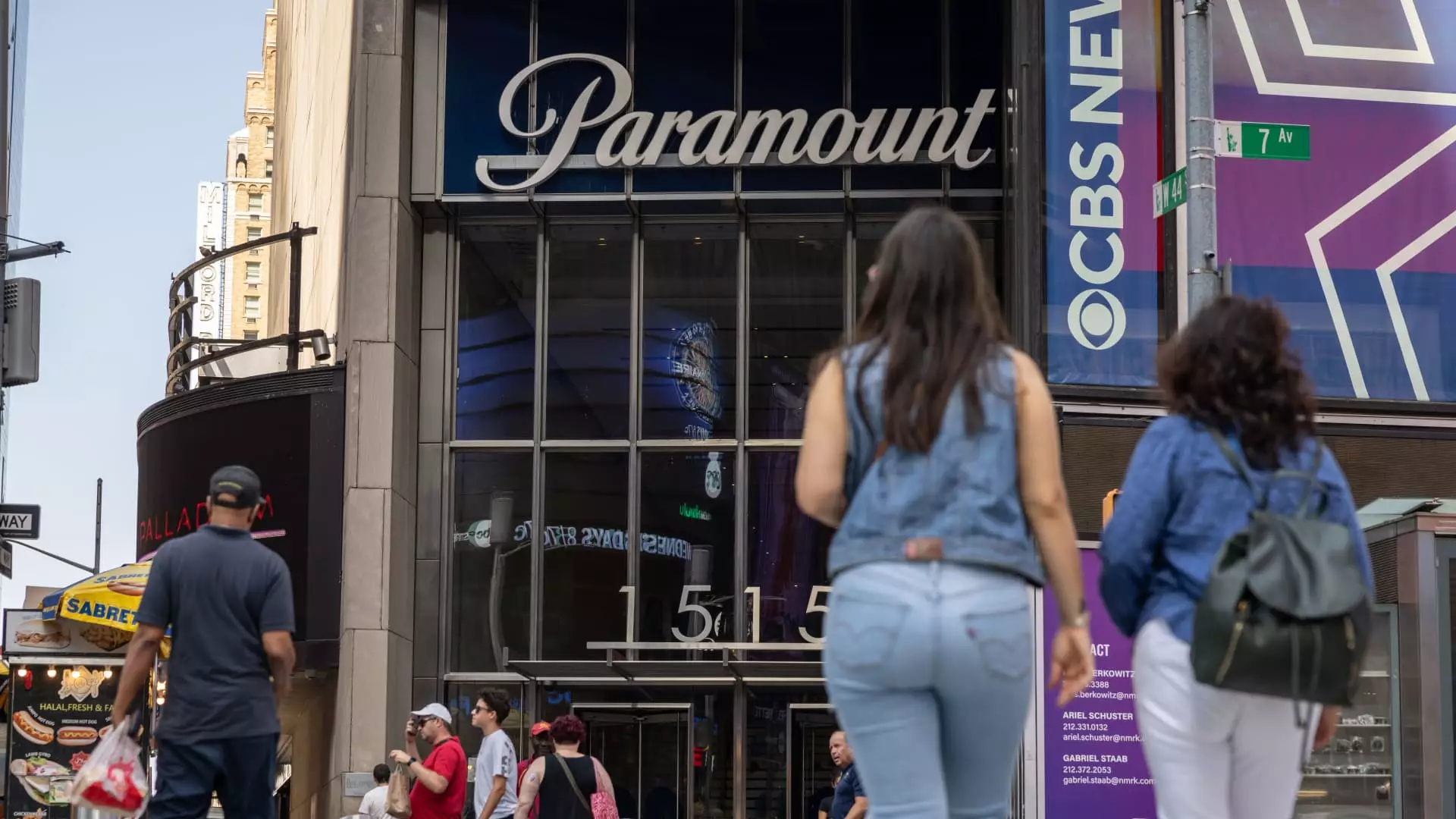Recently, Paramount Global made headlines by announcing the termination of several diversity, equity, and inclusion (DEI) policies. This announcement was made through a memo distributed to employees, which has raised eyebrows within the industry and among advocates for diversity in the workplace. The move appears to align with pressures stemming from political directives, notably an executive order issued by former President Donald Trump aimed at dismantling DEI programs across various sectors. This article delves into the implications of Paramount’s decision, contextualizing it within broader corporate trends and evaluating the potential impact on the company’s culture and brand identity.
In the memo released to employees, Paramount’s Co-CEOs George Cheeks, Chris McCarthy, and Brian Robbins stated that their policy changes were driven by legal directives, including the aforementioned executive order and recent Supreme Court rulings. The memo explicitly mentioned the cessation of aspirational numerical goals related to hiring metrics based on race, gender, or ethnicity, indicating a shift towards a more traditional hiring approach that prioritizes qualifications over demographic statistics. By aligning with the executive order’s directives, Paramount is not only positioning itself to comply with federal mandates but also signaling its willingness to adapt to the prevailing political climate surrounding DEI initiatives.
The rollback on DEI policies invites scrutiny regarding its repercussions on Paramount’s corporate culture. Historically, the media giant has demonstrated a commitment to inclusivity, with initiatives such as donations to racial justice organizations and programs designed to enhance storytelling through diverse perspectives. The abrupt discontinuation of such measures raises concerns about the company’s long-term dedication to cultivating an inclusive environment. Co-CEOs reassured employees that values of inclusivity and collaboration would remain part of the organization’s ethos, but questions linger regarding how these values will be manifested in a landscape where numerical diversity goals no longer exist.
Paramount’s decision parallels a growing trend among other corporations, including Walmart, Target, and Amazon, which have similarly scaled back their DEI commitments in recent months. In contrast, companies like Apple and Costco stand firm in their resolve to uphold and defend DEI policies, suggesting a divided corporate landscape in response to federal pressures. This divergence presents a wider question regarding how companies perceive the role of corporate responsibility in fostering social equity. As industry feedback becomes increasingly polarized along political lines, businesses will have to navigate a precarious balance between legal compliance and societal expectations.
The termination of DEI policies can have a cascading effect on talent acquisition and employee retention. Without clear commitments to diversity in hiring, Paramount may inadvertently limit its ability to attract a wide array of talent that reflects the diverse audience it seeks to serve. The media landscape is evolving, with consumers increasingly signaling their preferences for companies that prioritize diversity both in their workforce and the content they produce. Paramount’s choice to forego aspirational diversity metrics raises questions about its capability to resonate with an audience that values representation.
As the nation navigates through a transformative period in its social and political realms, Paramount’s latest policy shift serves as a microcosm of the larger dialogue surrounding DEI in corporate America. The challenge will be whether companies can redefine their cultural commitment to inclusivity without the structural support previously offered by formalized DEI initiatives. Moving forward, companies will need to explore innovative ways to embody diversity and equity, ensuring that the values they profess do not merely serve as buzzwords but instead translate into meaningful actions that resonate with both employees and consumers.
Paramount Global’s withdrawal from extensive DEI policies signals a significant shift in the corporate landscape that could reshape the future of workplace inclusivity. While it may be prudent from a compliance standpoint, the broader implications regarding talent acquisition, corporate culture, and societal expectations underscore the complexities faced by businesses today. As the debate around diversity and inclusion continues, the challenge for Paramount—along with its peers—will be to reconcile legal compliance with the pressing calls for meaningful diversity efforts that reflect the changing demographics and values of their audiences.

